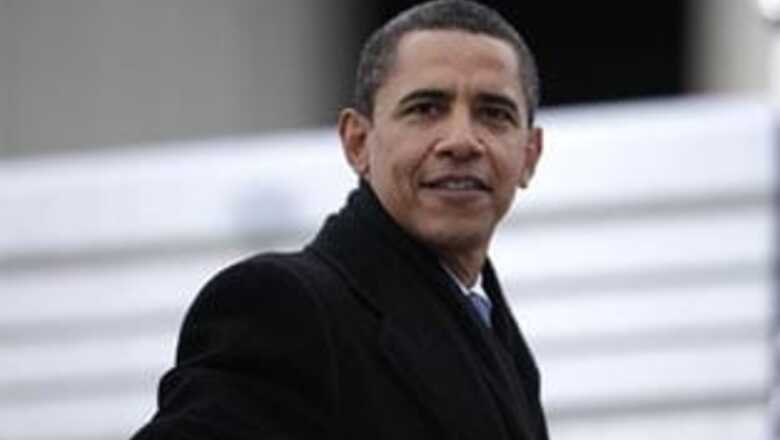
views
Washington: The US House of Representatives narrowly approved a historic climate bill that for the first time would force US companies to limit greenhouse-gas emissions blamed for global warming.
The 219-212 vote marks a major victory for President Barack Obama, who has made global warming and clean energy legislation a top priority for his administration.
But the legislation deeply divided US politicians, businesses and even climate groups. The outcome of the House vote was uncertain to the very last minute: Only eight Republicans voted in favour and 43 Democrats voted against the measure.
The bill now moves to the Senate, which could have an even tougher time getting the measure passed. Groups on both sides have also vowed to continue pushing for changes as the legislation makes its way through the US Congress.
The US, which together with China emits about half of the world's greenhouse gases, has long faced pressure from other governments to more aggressively reduce its carbon footprint.
German Chancellor Angela Merkel, who met Obama earlier Friday at the White House, backed the House bill as "an enormous success, which I would not have thought possible a year ago".
The mandatory emissions curbs approved Friday were long resisted by former president George W. Bush.
The Obama administration hopes the bill will bolster the country's bargaining position at a critical meeting in Copenhagen in December, where governments are expected to thrash out a new global treaty to combat climate change.
"It's a huge boost to the international negotiations," Jennifer Haverkamp of the Environmental Defence Fund, a non-partisan environmental group, told DPA.
"The negotiations have really been on hold, waiting to see what the United States will do," she said.
The centrepiece of the legislation is a so-called cap-and-trade system, which already exists in Europe and creates a market for carbon dioxide emissions that cause global warming. Companies would get pollution allowances that can be traded between dirtier and cleaner firms.
Supporters and opponents of the bill had been lobbying furiously throughout the week. Climate, business and industry groups have been out in force with television advertisements and mobilising their supporters to call their congressional representatives.
Lawmakers were locked in a spirited debate on the floor of the House throughout the afternoon. Opposition Republicans and some Democrats argued the bill would impose an undue burden on the US economy and shift jobs to emerging economies with less stringent environmental rules.
"The jobs will go to China and the (US) economy will go to hell," said Dana Rohrabacher, a Republican from California. "Wake up America!"
Obama hopes a cap-and-trade system will cut US emissions 17 percent below 2005 levels - about seven percent below 1990 levels - by 2020, and nearly 80 percent below 2005 levels by 2050.
Obama earlier Friday said the US had failed to tackle climate change in the past and acknowledged the country was lagging behind Europe in reducing emissions.
"Europe in many ways over the last several years has moved more rapidly than the United States," Obama said after his meeting with Merkel. He was "impressed" with Germany's "foresight and commitment to clean energy".
"It is my hope that the United States will match that commitment today," Obama said of the House vote.
But the bill has been watered down over the last few weeks and is still below the European Union's commitments. The EU has promised a 20-percent emissions cut below 1990 levels by 2020 and called for other wealthy countries to adopt stiffer targets as well.
Democratic leaders were forced into last-minute compromises to get the backing of lawmakers from farm and coal producing states, agreeing to hand out some pollution credits for free.
The compromises have made some climate groups uneasy. Carl Pope of the Sierra Club said his organisation would be pushing for major changes in the coming weeks.
"We urged the House to pass this bill so that we could work to strengthen it before it reaches President Obama's desk," Pope said in a statement. "It is now of the utmost importance that the Senate improve several of its provisions."
US businesses, many of which have pushed for a federal cap on emissions to replace a patchwork of state regulations, have also been divided over whether to support the bill.
The US Chamber of Commerce, which represents more than three million businesses around the US, came out in opposition.
"The chamber hopes, at some point, that Congress will find a way to balance the need for a strong US economy while still addressing global climate change. Unfortunately, Congress has fallen short with this bill," William Kovacs of the chamber said in a statement.



















Comments
0 comment